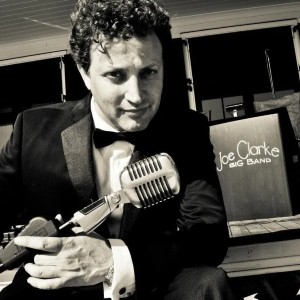
Soaring liquor liability insurance costs continue to challenge – and outrage – bar owners across South Carolina. But the quick-fix many were hoping for from the General Assembly appears to have gotten bogged down in the perennial legislative battle over lawsuit reform.
So the question now facing bar owners is whether they can find a way to keep their doors open while the major players in that long-running “tort reform” debate – insurance companies, large corporations, trial lawyers and victims advocates – duke it out in the state legislature.
And for many bar owners, the answer to that question could well be no.

“Unless I’m able to pull some sort of a magic rabbit out of a hat, we may be going down in the next two weeks,” Joe Clarke of Forte Jazz Lounge in Charleston said in an interview this week.
Clarke, who notes that he’s never had a claim against his liquor liability policy, said he’s seen his premiums skyrocket from $6,000 in 2019 to $32,000 today – with the best quote so far for his upcoming March renewal currently at $42,000.
Still, like many others in the industry, Clarke is considering every option to stay open, including the possibility of taking out a loan to cover the cost of the insurance.
“I’m a little too dumb to quit, I think,” he said. “I’m just very passionate about what we’re trying to do here, which is bring live jazz and local musicians up on stage so people can get a taste of the real musicianship we have to offer in Charleston.”
How we got here
Supporters of the stalled legislation – S. 533, or the S.C. Justice Act – tell a straightforward story.
Bars in South Carolina are required to carry a minimum $1 million liquor liability policy. But because South Carolina law allows bar owners to be hit with 100% of the cost of a jury verdict in drunk driving lawsuits – even if they were found to only be 1% responsible for the harm caused by the drunk driver – insurance companies that provide this liability coverage have been losing money. And as a result, they’re now raising rates dramatically to offset those losses. Several companies have opted to leave South Carolina, too, winnowing the number of insurers to a handful.
So the solution, supporters of S. 533 argue, is to reform the system such that bar owners, like most other civil defendants in South Carolina, can only be held responsible for the percentage of harm that they were found to have caused. This is what the bill they’re pushing would do.
“Because of the 1% clause, insurance companies are afraid to go to court,” said Kynn Tribble, the owner of Tribble’s Bar and Grill in Piedmont and a member of S.C. Venue Crisis, a statewide group that’s fighting to lower liability rates. “In no industry should a business have to pay 100% of something they’re not 100% liable for.”
But according to opponents of the legislation, that approach loses sight of the other party in the case – the victim of the drunk driver, who isn’t even 1% responsible for the harm done to her. Why, they ask, should we shift the financial loss from the insurance company onto her?
Chad McGowan, who’s both a plaintiff’s attorney and a partner in Rock Hill’s Legal Remedy Brewing Company, sees the issue from both sides.
And while he’s sympathetic to the plight of bar owners – his own liability coverage at Legal Remedy has risen sharply over the past two years – he’s also seen too many drunk driving cases where the underinsured driver could not pay his portion of the verdict. Under the strict percentage system created by S, 533, that would leave a victim without a way to collect her full damages.
“This is a moral judgment from my perspective,” McGowan said. “When there’s a choice, losses should never be borne by the innocent individual – they should be borne by the person responsible.”
Other opponents of the bill, such as S.C. Mothers Against Drunk Driving Executive Director Steven Burritt, believe it simply ignores the real problem – high DUI rates that frequently land South Carolina in the top ten states in the nation for drunk driving deaths.
“Part of the reason insurance rates are so terrible in this state is because drunk driving is terrible in this state,” he said. “We’re one of the worst states in the country for impaired driving … and we would put that on the table as a priority. There are many ways to get to better outcomes, and we’d like to see one that led to less people dying and being injured on the roads.”
A new option to break the logjam?
New legislation introduced last week in the S.C. House of Representatives, H. 5066, takes a different tack – one that aims to solve the bar owners’ problem without affecting victims’ rights.
Similar in principle to South Carolina’s medical malpractice insurance system, which was created to help doctors deal with rapidly rising insurance costs in the 1970s, the new proposal, dubbed the Fair Access to Insurance Act, would use existing liquor excise taxes to fund state-subsidized liquor liability policies for S.C. bar owners.
And while most bar owners seem to be leery of any solution that doesn’t directly address the 1-percent rule, they’re also open to an approach that would ease opponents’ concerns about victims rights.
“At this point, I’ve been listening to people go back and forth for a year and a half,” said Forte owner Clarke of the new legislation. “And I feel like, yeah, we need to take care of the people who get hurt because of people who are inebriated. That needs to be part of the equation.”
But with costs continuing to rise and fewer insurance options every day, that doesn’t solve his immediate problem.
“All of the insurance companies that everybody depended on have just disappeared, and now all that’s left are the ones that are willing to charge these astronomical amounts,” he said.
Like the $42,000 liability premium Clarke needs to come up with by March 3.
- Jack O’Toole reports on statewide issues for Statehouse Report and the Charleston City Paper. Have a comment? Send to: feedback@statehousereport.com.















 We Can Do Better, South Carolina!
We Can Do Better, South Carolina!